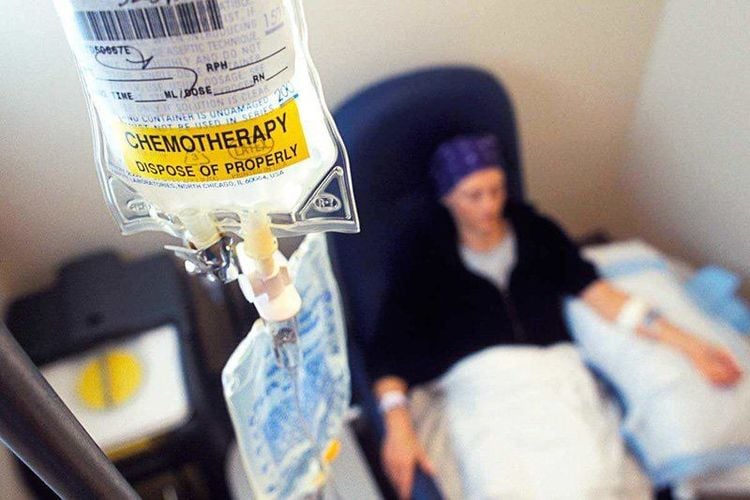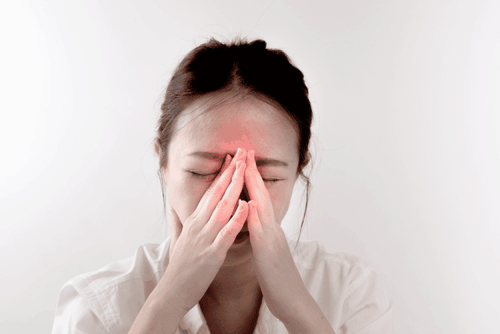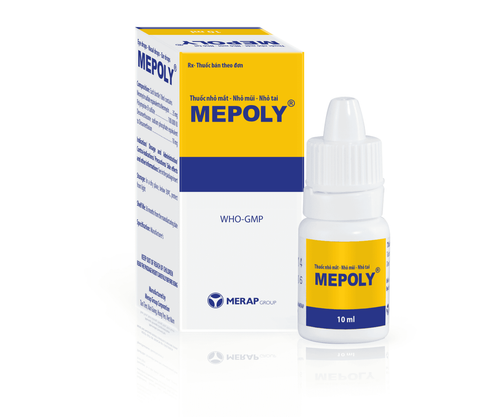This is an automatically translated article.
Loss of smell and taste are symptoms that can be experienced in many different medical conditions with varied causes. Therefore, patients need to learn about the causes of this condition to have the best treatment and prevention.
1. Loss of sense of smell
The sense of smell is recognized by the nose, which is one of the main human senses. Loss of smell is a condition in which a person loses the sense of smell and perception. This condition can be congenital or acquired. Loss of sense of smell can be identified, then treated according to the cause, or can be restored automatically. Loss of smell has many different clinical forms, can be partial or total loss of smell, temporary or lasting for life.
2. Loss of taste
Similar to the above, loss of taste is also a state of inability to perceive taste, greatly affecting the quality of life. Taste is one of the important human senses, helping to perceive tastes such as sour, spicy, salty, sweet, bitter... through nerve transmissions from receptors on the surface of the tongue. to the central nervous system, if this process is abnormal, it will lead to loss of taste. The causes of taste loss are also very diverse, and it is necessary to understand the cause of the disease to treat according to the cause.
In the context of the Covid-19 pandemic that is affecting the health of patients on a large scale, the sudden loss of taste and smell along with other signs such as fever, cough, etc. This condition is suspected, so the patient needs to be very attentive.

Mất vị giác có thể ảnh hưởng tới chất lượng cuộc sống của người bệnh
3. Can't feel the taste
Some factors that may be related to the inability to perceive taste are:
The olfactory-taste connection: Smell and taste are controlled by the olfactory area inside the nose, so when When chewing food, the odor molecules enter the back of the nose. When the taste helps the patient to feel sweet or bitter, the sense of smell helps to smell the aroma to know if this sweetness is from a grape or an apple... That's why when doing the squirt movement The nose will not perceive the taste of food as usual, because at this time the nose cannot smell the food. Age: As we age, the body loses the olfactory nerve fibers in the nose. At this time, the patient will perceive fewer tastes and the remaining tastes that the patient perceives are often not clear, especially when entering the stage of more than 60 years of age. This often affects the first perception of sweet and salty tastes. However, do not for this reason add more salt and sugar to your daily meals because it will cause other dangerous diseases. Illness or infection: Anything that irritates and inflames the lining of the inside of the nose can cause an itchy and stuffy nose,... These things affect the person's sense of smell and taste. sick. Diseases that can cause a lack of taste are colds, sinusitis, allergies, sneezing, stuffy nose, flu, Covid-19... can return to normal right after the illness, if it lasts too long, you can tell the treating doctor to be checked. Airway obstruction: If the patient does not have enough air circulating in the nose, the sense of smell will be affected, followed by the loss of taste. This blockage occurs when the patient has nasal polyps. In some cases, people can also have a deviated septum that makes one side of the nose smaller. All of these cases will be treated with nasal sprays, pills or surgery if necessary. Head trauma: The olfactory nerve carries scent information from the nose to the brain. Injuries to the head, neck, or brain can damage these olfactory nerves, as well as the lining of the nose, paranasal sinuses, or other parts of the brain that process smell. Patients may recognize this condition immediately or over time. In some cases, the condition is self-limiting, especially in mild cases of loss of smell and taste, which manifests as the person will be able to taste and smell different tastes and smells. strong scent. Certain medical conditions: Loss of smell can be an early warning sign of dementia, Alzheimer's, and Parkinson's. A number of other diseases can destroy the nerves that communicate to the olfactory center of the brain such as diabetes, Bell's palsy, Huntington's, Klinefelter's syndrome, multiple sclerosis, Paget's, Sjogren's syndrome, etc. Cancer and cancer treatment: Certain types of cancer and their treatment can change the signals between the nose, mouth, and brain. Those are the problems associated with tumors in the head and neck and radiation therapy in those areas. Chemotherapy, targeted therapy, or certain other medications with side effects can also be affected. The person may experience a metallic taste in the mouth, other unpleasant tastes, or a stronger taste. These problems usually go away after treatment ends.

Quá trình điều trị ung thư có liên quan đến vấn đề mất vị giác và khứu giác của người bệnh
Medications: Certain prescription or over-the-counter medications can change how you feel, especially antibiotics and blood pressure medications. They will alter taste receptors, disrupt the signals from taste to the brain and change the patient's saliva. You can talk to your doctor about this so you can stop taking any of these medications. Vitamin deficiency: Loss of taste and smell can be one way the body is sending a message that a vitamin deficiency is present. Certain medical conditions or medications can cause a person to lose vitamins related to smell and taste, such as vitamin A, vitamin B6, vitamin B12, and zinc. However, it is also possible that because the patient eats less because he cannot smell or taste the food, the body is not provided with the necessary amount of vitamins. Smoking, drugs and chemicals: In addition to its potential to lead to cancer, tobacco also damages and kills the cells that help the brain distinguish smells and tastes. Smoking also causes the body to secrete more mucus, reducing taste cells. Cocaine use also has a similar effect on sensory cells. Hazardous chemicals such as chlorine, paint solvents and formaldehyde have similar effects. In summary, loss of smell and taste can affect a patient's life in a variety of ways. It also causes other dangerous complications such as the patient cannot smell the gas, poison ... in emergency situations, so it is necessary to notify the doctor immediately when there are suspicious signs.
Please dial HOTLINE for more information or register for an appointment HERE. Download MyVinmec app to make appointments faster and to manage your bookings easily.













